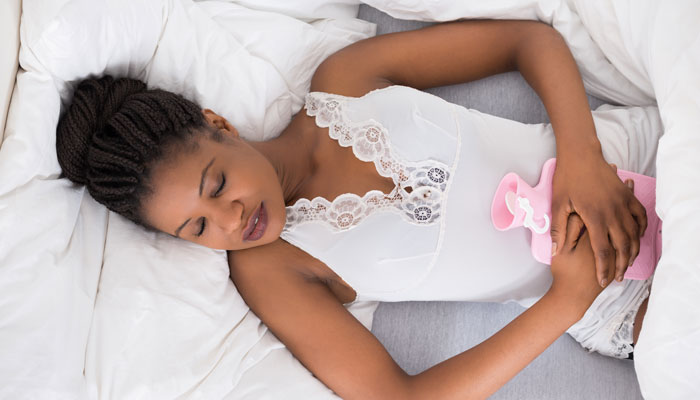
Coping with Menstrual Cramps
Each month, many women deal with the unpleasant and uncomfortable symptoms that come with menstruation. It’s an important part of a natural cycle, but cramping can make it very difficult to keep going at work and home. Luckily, there are some things you can do to improve your comfort level.
Understanding Cramps
The technical term for menstrual cramps is dysmenorrhea. They’re a result of uterine contractions. The uterine muscle contracts multiple times, and, if it clenches too tightly, it will press against nearby blood vessels. The pressure prevents oxygen from reaching the uterus and the surrounding tissues. This temporary loss of oxygen is what causes the pain.
Cramps cause pain as well as a feeling of pressure in the abdomen. You may experience pain in your lower back, hips, and thighs. Discomfort can range from mild to severe. The most extreme cases can lead to loose stools, upset stomach, and occasional vomiting.
Overcoming the Discomfort
You can do many thigs to ease your pain during menstruation. First, pain medicine offers a lot of relief. Aspirin, acetaminophen, ibuprofen, and naproxen are all good choices. If you find that one works for your body better than others do, take it. Always follow the manufacturer’s dosage instructions. Taking these medications too frequently or with alcohol can result in liver damage.
Heat will also help. Many women take hot baths or use heating pads or hot water bottles pressed to their abdomen or lower back. The warmth will relieve tension in the muscles, helping to restore part of the blood flow. Though a full-on work out might not be the best thing for your body, doing a bit of exercise will help, too. Plan a walk or gentle bike ride to alleviate some of the discomfort.
It’s also important to rest when you need it. Your body is going through significant changes and it can take a lot of energy to shed the uterine lining and begin producing a new one. You shouldn’t push yourself too hard, so take breaks on days when cramps are particularly painful.
You should avoid caffeine and salt whenever possible. Both affect your blood pressure and make it more likely that you’ll experience cramping. They can also exacerbate dehydration, so make sure you’re always getting enough water. Smoking and alcohol consumption can also intensify cramps.
If your cramping seems worse than usual or lasts more than two or three days, contact your OB-GYN. Conditions such as endometriosis, pelvic inflammatory disease, stenosis, and tumors can cause changes in your menstruation, so it’s best to be on the safe side to protect your reproductive health.
